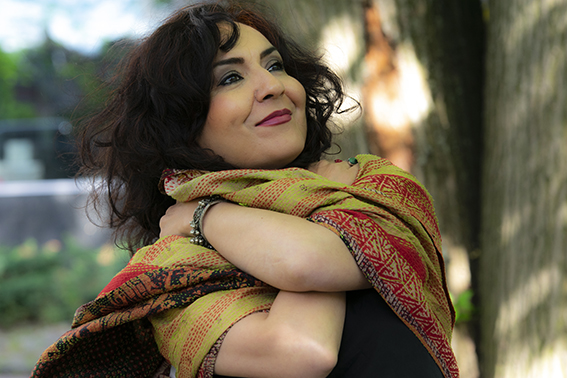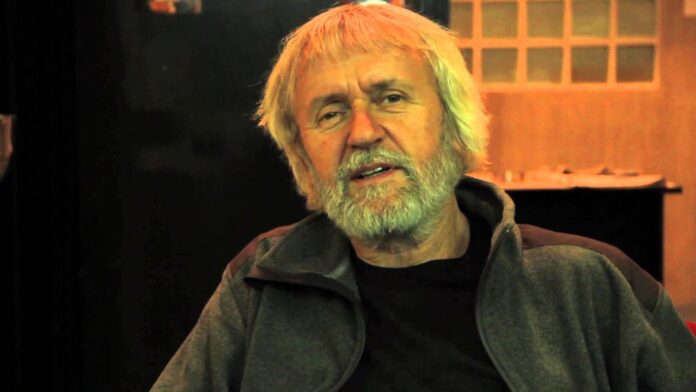(THIS ARTICLE IS MACHINE TRANSLATED by Google from Norwegian)
The record company and the cultural communicator Church Culture Workshop (KKV) no longer receives their annual support of two million from the Ministry of Foreign Affairs (MFA) – which they have had since 2012.
Conservative foreign policy adviser Alexander Zlatanos Ibsen explains MODERN TIMES the reason for this reprioritisation: “It has to do with our desire to direct cultural aid more directly to partners in recipient countries. This means giving fewer transfers to Norwegian players. Such a reorganization is in line with the OECD's criteria for development assistance, which states that the contributions must aim to promote economic development or welfare in developing countries. "
Church Culture Workshop
Owner and CEO Erik Hillestad (pictured) in KKV emphasizes to MODERN TIMES that there is now talk of a total of fewer funds: «The figures they operate with are a bit distorted because in the beginning they had two departments that have now been merged. One worked on human rights and the other on culture. I would argue that in practice there has been an estimated halving of the cultural budget for the South – from 128 million previously. "

Conservative Ibsen further says that Norwegian cultural assistance will strengthen the conditions for cultural life in developing countries. He points out that there can be many good reasons for promoting Norwegian artists and cultural actors abroad, but that it is more difficult to justify this as a development policy purpose: “It is ultimately about something as prosaic as priorities. For these allocations, as for all other development assistance, it is important to get an overview and have an inspection. In our new party program, we have also stated that we want to work for more measurable results for all the assistance we provide. "
Hillestad believes that by sending the money directly to the countries, the reciprocity between Norwegian and foreign artists disappears: “This is not about promoting Norwegian artists and cultural actors. The world is globalized and art has no national borders to relate to. Most artists work internationally. For example, as a partner with the music industry in the Middle East, we have been able to help them with a distribution in Western Europe and North America. "
According to Hillestad, with greater visibility, they become more important in their home country. At the same time, he points out a danger: “A western record company like ours can be a free space for them to express what they want, for example politically, without being limited by an internal censorship. IN Egypt it is completely impossible for an Egyptian company to publish what our collaborating artists want to say. They can be shut down and prosecuted for it. While when artists get released music with us, they can say what they want. A collaboration gives a kind of immunity in that they are perceived as supported by a western institution – and that we follow what happens to them.
Norway and the Middle East
KKV chose the Middle East as a field of work after they heard President Bush in 2002 talk about the axis of evil in order to build up a strengthened enemy image of some countries, especially Iraq, Iran and North Korea: "Then we got the urge to go and make recordings of women who sang lullabies. Our project Lullabies From the Axis of Evil led us to many artists, singers, musicians and poets in these countries. This is how the Middle East became our field of work.

Hillestad elaborates: "We have collaborated with the leader of the well-known hip hop group # 47SOUL from Palestine on a number of concerts. He was just arrested by Israeli police, but since the band is internationally known, he was released relatively quickly. It probably had not happened to an unknown. I have also been present at specific trials in some countries, where just sitting in the courtroom can have an impact. This has been requested by our contacts. "
We ask KKV if Norway also had an important benefit from their collaborations, culturally and artistically: «Collaborating with artists other than those we normally relate to – such as the USA, England and Sweden – also gives a lot to Norwegian artists and writers who have participated in our projects. This is about reciprocity. It is also important from an integration perspective that the role models of Norwegian immigrants are seen and appreciated in Norway. This will be lost when, in terms of development assistance, only a pile of banknotes is sent to an institution in the Middle East.
In the Middle East, expressing oneself artistically is not self-evident: "For many artists in Palestine, for example, the occupation is so intrusive throughout their daily lives that it becomes almost impossible not to relate to it with everything they do."

In Egypt, it is possible to engage in entertainment, but according to Hillestad, the Egyptians relate to a desperate situation in relation to freedom of expression and women's perspectives: "They rather express what can affect their situation in a more positive direction. A bit of the same thing is happening in Lebanon. The whole country has been turned upside down by economic crises and the bombing last summer. The whole country is on the brink of collapse. All they want to do as artists is to relate to this – and everything has political implications. "
Females
According to Hillestad, the new move to provide financial support directly to countries in the Middle East will entail a risk that more womanartists in practice are ignored, as cultural institutions in the Middle East favor men over women: "Through us, women can be prioritized and strengthened."
The women often live in a border country where they are both protected and exposed, as in Iran: «We have experienced that some of the artists we have collaborated with have received court decisions and been summoned for questioning. Some have had their passports confiscated. The contact with a foreign player can in different countries both provide protection and at the same time be challenging in relation to the authorities, "says Hillestad.
Hillestad has worked with many female artists in Iran: "Singing is in itself a political act – because it is forbidden for women to perform in public for anyone other than women. Then solo singing becomes a political act, even if they sing about flowers and nightingales. "


